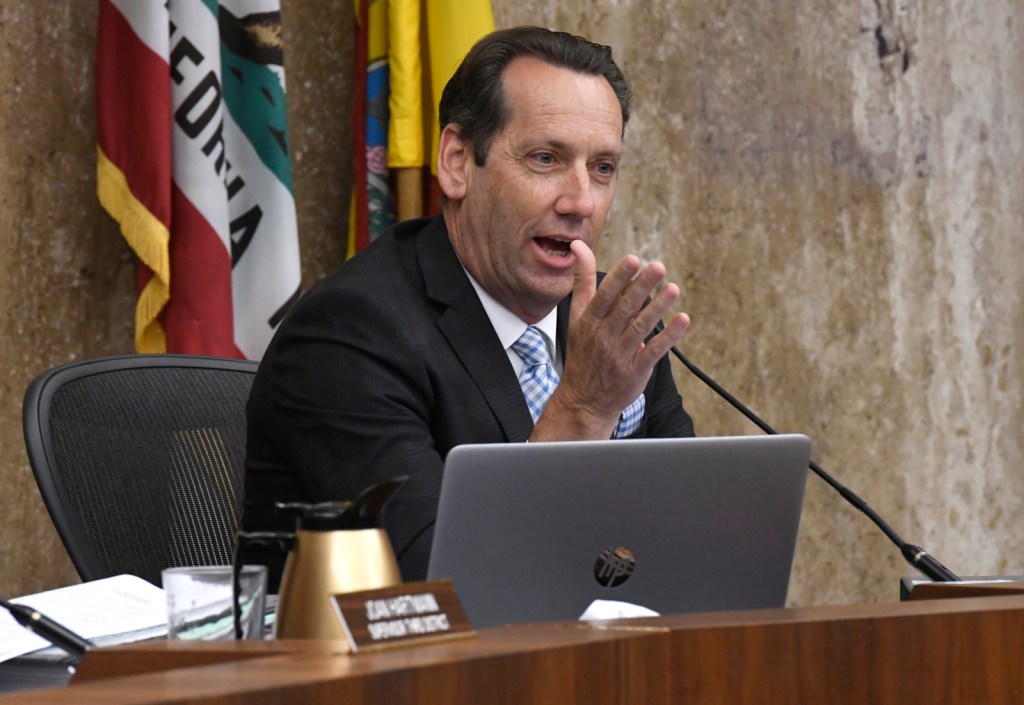There were far more unknowns than knowns this week as the county supervisors contemplated just how big a hole the COVID crisis has blasted in their budget, but one number stood out and poked everyone in the eye. That’s the $10 million they’re banking on cannabis to generate in tax revenues over the coming year.
The supervisors have tentatively set aside $3 million of that to cover the cost of COVID-related expenses. Another $7 million would backfill other revenues — sales tax and bed taxes — that will be lost because of the economic violence inflicted by the virus and the state’s emergency shutdown in response to it.
Every year this time, the supervisors take a preliminary crack at the budget they are legally required to submit by June. This year’s exercise was uncertain in the extreme. “No one really has any idea how bad this thing is going to hurt,” said 5th District Supervisor Steve Lavagnino. By that, he meant that the supervisors don’t know yet how much the state or federal governments will provide — if anything — to the county to offset various losses and expenses incurred as a result of the virus.
In this context, Lavagnino — a strong advocate for the newly legalized cannabis — noted the new industry has surpassed expectations. Last year, he said, the county projected cannabis revenues of $5.6 million but took in $9.2 million instead. For the coming year, county bean counters are projecting $10.6 million in revenues. “That’s $20 million we wouldn’t otherwise have had,” Lavagnino stated in an interview after this Monday’s supervisors’ meeting. “It’s become one of the legs of our three-legged stool,” he said, the other two being sales taxes and bed taxes charged to motel and hotel guests.
As welcome as the money is, Lavagnino took a rosier view of the county’s financial predicament than some of his board colleagues, most notably Supervisor Peter Adam, who spoke of the economic impacts in almost apocalyptic terms. Lavagnino praised County Executive Officer Mona Miyasato for squirreling money away into special reserves over the past few years on the assumption that a recession was on the way. “It’s not quite the debacle others expect,” Lavagnino cautioned.
Although the COVID crisis is far from over, Lavagnino noted the numbers of patients hospitalized and placed into intensive care units has flattened out and actually dropped a little over the past two weeks. Should that trend continue, he said, the county will be spared certain big-ticket expenses, such as opening a pop-up alternate care site (ACS). San Luis Obispo County, he said, wound up spending millions on an ACS located on the Cal Poly campus that has yet to see one patient.
Lavagnino said the supervisors have been under pressure from some in the business community to cut costs by laying off workers, furloughing them, or cutting their pay. He’s not there yet, he said.
“Who do we cut? Firefighters? Sheriff’s deputies? Health workers? Mental-health workers?” he asked. “I’m sure not every one of the county’s 4,200 workers is strictly essential, but if we start laying people off, we have to worry about creating new clients.”
Although the county has experienced a backlash against the cannabis industry in some parts of the county, Lavagnino remains an enthusiastic supporter. “If we didn’t have that $20 million, what would we do? There’s no oil money. There’s no short-term vacation rentals. Where would it come from?”
In a statement, Concerned Carpinterians, an organization that emerged out of concern about the strong cannabis odors wafting throughout the Carpinteria Valley, dismissed the revenues as “a paltry fraction” of the county’s $1.2 billion budget, stating the revenues were “at best unreliable,” with unknown public-health and environmental ramifications. Cannabis growers, the organization noted, got to self-report how much they owed with no oversight until recently. “We know how that goes for businesses who are allowed to guestimate what they owe in taxes,” the statement read.
Such concerns — now being addressed — were not foremost in Lavagnino’s mind. “I just ran into a grower,” he recounted, “who told me he was dropping off $400,000 to the county in tax revenues. In cash.”

